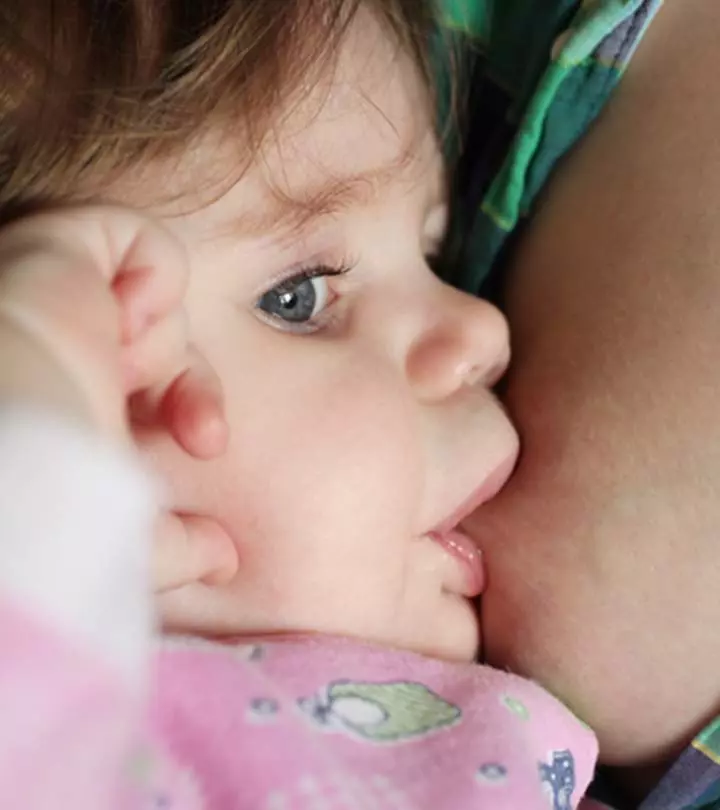
Image: Shutterstock
Different mothers have different ideas about breastfeeding. One thing for sure is that the benefits are enormous, not just for the baby but for the mother too. For the baby, s/he has lesser chances of developing respiratory infections, asthma, allergies, and gastrointestinal problems (1).For the mother, you’re less likely to suffer from cardiovascular disease or breast cancer, and you’re at less risk of developing diabetes too. So, go for it! If you’re deciding to breastfeed, plan out how long you’re going to breastfeed for.
The American Association of Paediatrics (AAP) recommends complete breastfeeding for the first six months and introducing solid foods along with breastfeeding until the end of the first year (2). However, if you can’t make it that long, don’t fret. The longer you can breastfeed, the better it is for the baby. Even a few days more means important antibodies get transferred to your little one, providing a huge benefit.The antibodies help your baby’s digestive system get to work more readily besides providing additional benefits.
The Centre for Disease Control found that 82% of mothers in America breastfeed, but only a third of moms did so until the end of the first year (3). This means that babies are getting weaned off of nursing before the recommended full year. While this hasn’t been found to be much of a problem, the AAP’s advice is always best to be followed.
The old adage, “Breast is best,” really does have its roots in the truth. Breast milk provides perfectly balanced meals to your baby, as it is specifically tailored to your baby’s nutritional needs. The antibodies mean that your baby doesn’t need to be vaccinated until after s/he’s six months old, and prevents a requirement formedication when your baby gives so much as a sniffle. In the old days, before advancements in medical science, babies used to suffer from SIDS or ‘sudden infant death syndrome’. This is why the older generation used to have many children – in case any suddenly pass away. Breastfeeding reduces that risk by at least half.
Additionally, there’s no denying it – having a newborn is expensive. And breastfeeding saves a lot of money! Natural mother’s milk is rather easy on the wallet when compared to buying infant formula. Not only is it cost-effective, it’s also a green measure – it’s environmentally friendly. No packaging, recycling, or anything of the sort!
Some mothers worry about losing weight after childbirth, focussing on getting back into the same shape they were in before pregnancy. Well, breastfeeding helps with that too, burning anywhere between 425 and 700 calories per day (5). One study found that completely breastfeeding for six months helps you shed nearly all the weight you put on during pregnancy (6).
Having said that, breastfeeding is such a personal choice that only you and your family can be the best judge of how long it should last. The AAP merely provides guidelines, they aren’t hard and fast rules. Perhaps your workload increases after the first six months, or you’re having trouble lactating. The former is completely understandable, especially if you have other children, or you have nobody to help you around the house. If it’s the latter, a paediatrician would recommend formula along with the nursing that you can provide.
Besides all the science, there’s no denying the emotional bond that comes with breastfeeding; a lifelong relationship with your baby begins at the breast. So, make your decision when you need to. Remember, six to twelve months is the ideal.












